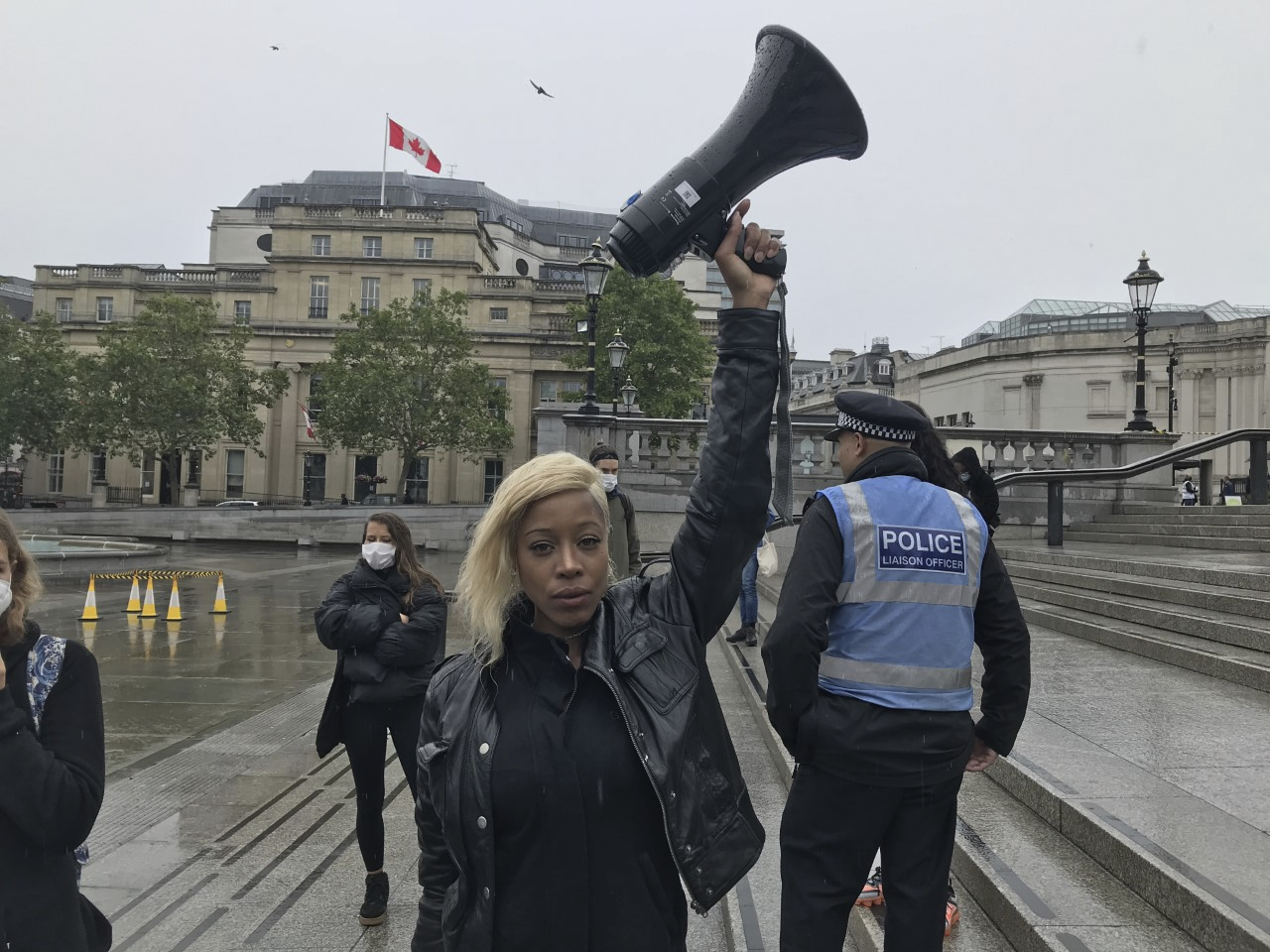Before protests demanding equality for Black people swept across the country, Aba Amoah was finishing her criminology degree, practicing Mandarin and planning her next trip abroad.
Now, the 22-year-old is at the vanguard of the Black Lives Matter movement in the U.K., engaging with parliamentarians and organising protests from her London home.
‘Women know how it feels to be marginalised. We are doubly oppressed – we have our skin colour, and the patriarchy,’ she says.
Less than two months ago, she co-founded Justice For Black Lives, one of the dozen or so anti-racism groups to have mushroomed in recent weeks.
Across the country, pockets of resistance have been women-led, whether taking to the streets or using their government positions to seize upon the moment. Long marginalised and sidelined – they earn the least compared to all other groups while being overrepresented in single-parent households – they are uniquely situated to drive change.
Their uprising has turned the spotlight on a country both in denial about its colonial past and the endemic prejudice of the present.
‘Black women are coming into their own across the world,’ says Imarn Ayton, a 29-year-old children’s drama teacher and activist who has emerged as one of the movement’s figureheads. ‘Strong Black women are demonised, we’re seen as having ‘attitude’. But we’re feeling more confident now,’ she says, before relaying, with an almost disarming eloquence, proposals on how to reform the judicial, health and education systems.
The killing of George Floyd galvanised Ayton to action after a lifetime of experiencing what she describes as ‘a very British combination of covert and overt racism.’
Battling race and health issues
Adding urgency to the calls for change is the coronavirus pandemic, which is taking a heavier toll on people of colour, especially women, according to the Fawcett Society. A recent survey by the women’s charity shows how the disease has laid bare a mixture of precarious work arrangements and undetected health conditions among minority women in recent months.
The protests come after a decade of austerity policies at the hands of a Conservative government whose role in the 2018 Windrush scandal, which wrongly targeted and even deported Caribbean immigrants, left many people in their communities pained and disillusioned.
Black women suffer disproportionately: mental ill-health is most prominent among them, and they are five times more likely to die in childbirth compared to white women (Asian women are twice as likely to die).
British Black women have pointed to Meghan Markle’s harassment by the media, including having her newborn son compared to a monkey by a BBC presenter, and her departure from royal life at the start of the year as public confirmation of the systemic racism running through society.
Strong Black women are demonised, we’re seen as having ‘attitude.’ But we’re feeling more confident now.
Imarn Ayton
Black women have been at the front of a flurry of political action. In London, a university student’s petition to make colonial history part of the compulsory curriculum led to an ongoing debate within government. After protesters toppled and dumped the statue of slave owner Edward Colston into the river in Bristol, an artist temporarily erected a life-size steel monument of demonstrator Jen Reid, who climbed atop the plinth in his place, her right fist raised and clenched. And shortly after Floyd’s death in U.S. police custody, a cohort of Black female MPs changed their Twitter handles to include ‘I can’t breathe,’ the final words uttered by the Black father as he pleaded for air when a white officer pinned him down at his neck.
‘We still have a long way to go but I am hopeful that we are on the cusp of change, systemic change,’ says MP Dawn Butler, the second Black woman to ever enter parliament.
A call to action
Earlier this month, Butler says she was forced to close her constituency office, citing how the torrent of threats and abuse she regularly faces has shot up ‘exponentially’ since supporting Black Lives Matter. Even then, she still believes that the country is forging a new path. ‘For the first time, we’re seeing generations fighting together,’ Butler says. ‘Now is the time when people are beginning to listen, actively listen, and then it’s time for action.’
Prime Minister Boris Johnson responded to the wave of protests by establishing a new commission to investigate racial inequalities in the U.K., but Labour politicians and activists were quick to condemn the body’s head, adviser Munira Mirza, who three years ago penned an article describing institutional racism as ‘a perception more than a reality.’
Ayton says men may be staying away from the limelight due to their ‘more complicated relationship’ with the police: under the controversial stop and search law, law enforcement have excessively targeted young men from Black, Asian and ethnic minority communities.
‘If we don’t engage, the passion people feel will turn into anger,’ says MP Abena Oppong-Asare, who created the Twitter campaign. ‘It’s easy to make the case for Black women. We have so many barriers to overcome.’



